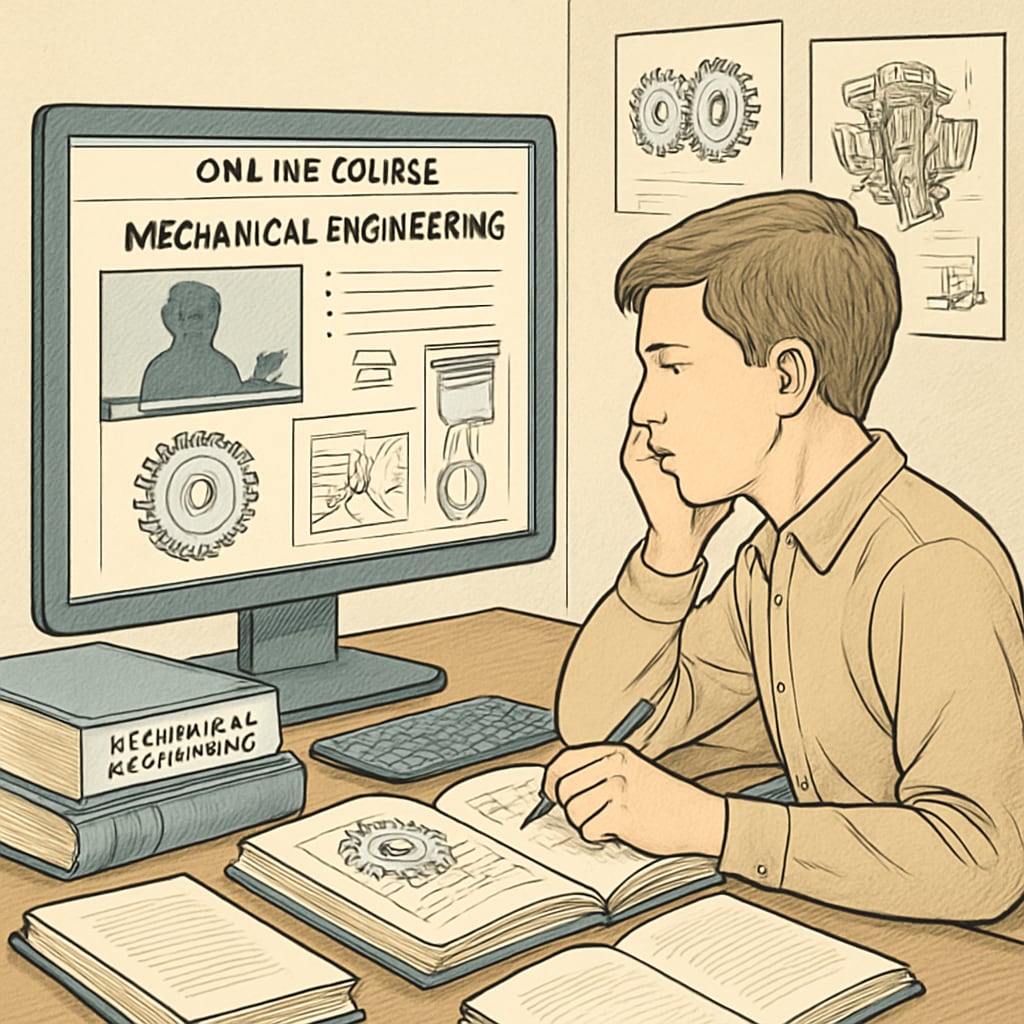Pursuing an online degree while focusing on your primary field of study, such as mechanical engineering, can significantly strengthen your career planning and competitiveness. As the job market evolves, employers increasingly value candidates with diverse skill sets and the ability to work across disciplines. For K12 students considering their future paths, planning ahead for dual-degree opportunities can offer a unique edge in their professional journey. This article explores the benefits of combining online degrees with traditional study, the importance of cross-disciplinary skills, and actionable strategies for creating a personalized career roadmap.
Why Consider an Online Degree in Addition to Your Major?
Online degrees offer a flexible and accessible way to acquire additional qualifications without disrupting your main academic focus. For instance, a student pursuing mechanical engineering could complement their studies with an online degree in data science or business management. This combination not only enhances technical expertise but also develops skills in analytics or leadership that are highly sought after in today’s workforce.
Moreover, online education platforms such as Coursera and edX provide students with the opportunity to learn from world-class institutions, making quality education more accessible than ever before. For example, a mechanical engineering student with additional knowledge of supply chain management could become highly valuable to industries like manufacturing or logistics.

How Cross-Disciplinary Skills Boost Career Opportunities
Cross-disciplinary skills allow professionals to approach problems from multiple perspectives, often leading to innovative solutions. In the field of mechanical engineering, understanding coding or project management can make you more versatile and open doors to leadership roles or specialized positions.
For example, mechanical engineers with proficiency in software like MATLAB and Python can create simulations and automate processes, adding significant value to their teams. Similarly, knowledge of business fundamentals can help engineers understand market demands and contribute to strategic decision-making. This versatility not only strengthens your resume but also prepares you for a rapidly changing job market.
According to Britannica’s overview of online education, the ability to learn flexibly and develop diverse skills is becoming increasingly important as industries shift toward digital and remote work environments. Therefore, combining technical expertise with other skills can provide students a competitive edge in their future careers.

Practical Tips for K12 Students Planning Dual Degrees
While the idea of pursuing dual degrees might seem daunting, early planning can make the process more manageable. Here are some practical steps to consider:
- Identify Your Core Interests: Start by exploring subjects that genuinely excite you. If you enjoy problem-solving and innovation, mechanical engineering might be your primary focus, while fields like business or data analytics could complement your skills.
- Leverage Free Resources: Platforms like Khan Academy and YouTube offer introductory courses in various subjects, helping you identify areas you might want to explore further through an online degree.
- Set Clear Goals: Define how the additional degree aligns with your career aspirations. For example, if you aim to work in renewable energy, an online certificate in environmental science could be an excellent addition.
- Time Management: Balancing two degrees requires careful planning. Use tools like Google Calendar to allocate time for coursework, extracurricular activities, and self-care.
- Seek Mentorship: Connect with professionals who have pursued similar paths. Their insights can help you navigate challenges and make informed decisions.
By following these steps, K12 students can create a structured plan for pursuing dual degrees, ensuring both academic success and personal growth.
Conclusion: The Long-Term Benefits of Dual Degrees
In an increasingly competitive job market, having a dual degree—whether in mechanical engineering and an online discipline—can set you apart and open up diverse career opportunities. The ability to combine technical expertise with cross-disciplinary skills is highly valued across industries and can position you as a leader in your field. By planning ahead during the K12 stage, students can lay the foundation for a fulfilling and successful career.
For further reading, explore mechanical engineering on Wikipedia to better understand the scope and applications of this dynamic field.
Start planning your dual-degree strategy today, and unlock the potential to thrive in a world that values adaptability and innovation.


